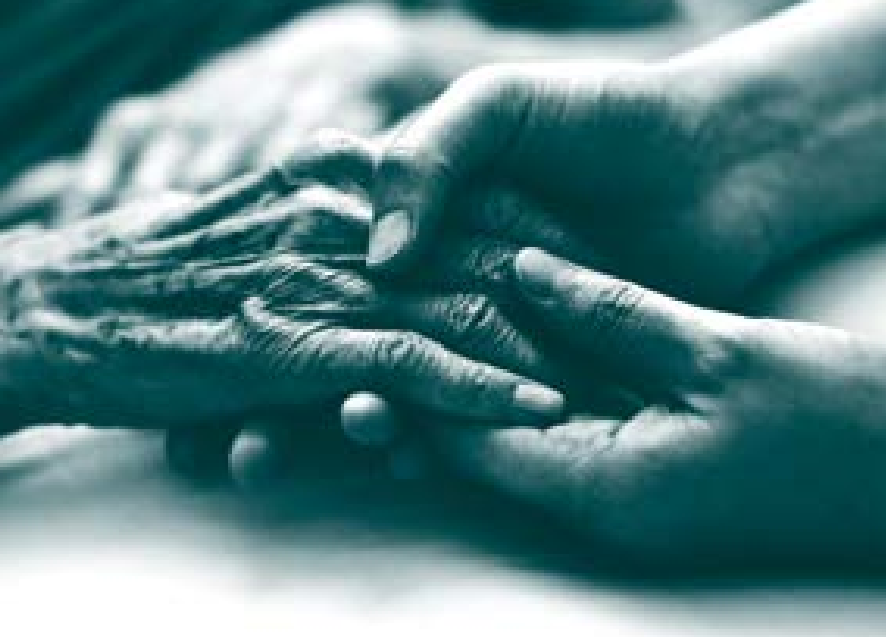Catholic Considerations for our Earthy Passing

We know earthly death is not the end, but rather the door through which we must pass to gain eternal life. Because of our belief and hope in the Resurrection, we can face death not with fear, but with preparation. Although certainly not comprehensive, the following considerations are provided as starting points for understanding and preparing for this transition, whether it is imminent or not.
Now and at the Hour of our Death [1]
We prepare for eternal life by choosing to love and follow God now, in our daily lives and decisions. For example, through prayer and regular reception of the sacraments, especially Confession and the Eucharist, we obtain grace to live in ever-deeper communion with God and with one another in lives of faith, charity, and justice.[2] We ask for Our Blessed Mother’s help now, and we entrust ourselves to her further as we “surrender ‘the hour of our death’ wholly to her care.”[3]
Forming Our Consciences
Our journey with Christ naturally includes equipping our consciences to make morally good judgments and acting accordingly.[4] Learning about the dignity of human life and the indispensable respect for it,5 as well as applicable principles for medical care, is particularly important in preparing for our eventual passing.
Some bishops offer guides applying moral principles to local legal options.[6] Parish and online resources are also widely available for careful and prayerful study, and the Ethical and Religious Directives from the United States Conference of Catholic Bishops give direction for health care services to those who are seriously ill or dying.[7]
A Note on General Principles
No summary can substitute for thorough catechesis, but some general principles are clear. We are entrusted by God with the gift of life, and in response, we care for our lives and health in obedience and gratitude to our Creator.
This obliges us to make use of appropriate, effective medical care. However, even effective treatments may at times impose such a great burden that we, in good conscience, may forgo or discontinue them. This applies even to life-sustaining treatments. Of course, nothing should be done or deliberately omitted to hasten death.[8]
The Church affirms the inviolable dignity of every person, regardless of the duration or extent of the person’s incapacity or dependency. Nothing diminishes the unchangeable dignity and sanctity of a person’s life, or the obligation to protect and care for it. In principle, assisted feeding and hydration should be provided unless it cannot sustain life or is unduly burdensome to the patient, or if death is imminent whether it is provided or not.
Moreover, no one should choose suicide, nor counsel or assist another to take his or her own life.
Discerning Treatment Options
Judging the effect and burden of treatments can be difficult, especially as death draws near. To understand health facts and treatment options, we need professional medical advice. To understand Catholic moral teaching, we need to consult Church teaching and those who can faithfully explain it.
Speaking with Loved Ones
After informing our consciences, we need to inform our families. If we are unable to make decisions, they most often have legal authority to make surrogate decisions on our behalf. Or we may designate a health care agent by a durable power of attorney.
Though it is often helpful to also have written, signed documentation, no living will “check box” can ever replace clear conversations about our faith-guided principles. The best option is to choose an agent who will make medical decisions on our behalf in accord with our Catholic faith and Church teaching.
We should also inform family of our pastoral care preferences, and make clear that after death, we desire prayer, funeral rites, and Christian burial.[9]
Accompaniment before and after Death [10]
Those who are sick should not be alone, as multiple popes have reminded us in messages for the annual World Day of the Sick. Patients who have serious or life-threatening illnesses, as well as their families, can be provided with physical, psychological, and spiritual care through team-based palliative care.[11] Hospice care can provide similar integrated care for those nearing death and for their families.
Pastoral care is integral to both palliative and hospice care, and includes making available the Eucharist, Confession, Anointing of the Sick, and Viaticum.[12] It also includes supportive prayer[13] and support for decision makers. It may be helpful to familiarize ourselves with local services available in preparation for our own passing or that of loved ones.
Even after death, accompaniment continues. Our prayers can help those who are being purified in Purgatory, so it is a spiritual work of mercy to pray for those who have died.[14]
Hope in the Resurrection
Those who die in God’s grace and friendship live forever with Christ. Heaven is not an abstract idea, but a true and lasting relationship with God that is beyond all earthly description and understanding. We look forward to the resurrection of the dead and everlasting life by preparing now, in hope, for our passage from this life into eternal life.
We need not fear. Christ is with us.
[1] Catechism of the Catholic Church, 2nd ed., 2012 ff.
[2] See Pope Francis, General Audience, 27 November 2013 (Libreria Editrice Vaticana), https://w2.vatican.va/content/francesco/en/audiences/2013/documents/papa-francesco_20131127_udienza-generale.html. . . .
[3] Catechism of the Catholic Church, 2677.
[4] Catechism of the Catholic Church, 1776 ff. United States Catholic Catechism for Adults (Washington, D.C.: United States Conference of Catholic Bishops, 2006), pp. 314-315.
[5] Catechism of the Catholic Church, 1701 ff., 2258 ff.
[6] Many state conferences of Catholic bishops have published materials which may help you with decisions about advance directives. To find these and other resources, contact your local diocesan Respect Life office. A directory is available at www.usccb.org/about/pro-life-activities/diocesan-pro-life-offices.cfm.
[7] Ethical and Religious Directives for Catholic Health Care Services, 5th ed, (Washington, D.C.: United States Conference of Catholic Bishops, 2009), http://www.usccb.org/about/doctrine/ethical-and-religious-directives/. (See especially Part 5.)
[8] See Pope John Paul II, Evangelium vitae, (Libreria Editrice Vaticana, 1995), 15.
[9] A summary is found here: http://www.usccb.org/prayer-and-worship/bereavement-and-funerals/overview-of-catholic-funeral-rites.cfm.
[10] Pope Francis uses the term “accompaniment” often; see its many occurrences in Evangelii gaudium.
[11] Pope Francis, “Address of His Holiness Pope Francis to Participants in the Plenary of the Pontifical Academy for Life” (Libreria Editrice Vaticana, 2015), https://w2.vatican.va/content/francesco/en/speeches/2015/march/documents/papa-francesco_20150305_pontificia-accademia-vita.html. . . .
[12] Catechism of the Catholic Church, 1499–1532. See also Pope Benedict XVI, “Message of the Holy Father on the Occasion of the Twentieth World Day of the Sick” (Libreria Editrice Vaticana, 2012), https://w2.vatican.va/content/benedict-xvi/en/messages/sick/documents/hf_ben-xvi_mes_20111120_world-day-of-the-sick-2012.html. . . .
[13] See for example these prayers at the time of dying and death: http://www.usccb.org/prayer-and-worship/bereavement-and-funerals/prayers-for-death-and-dying.cfm.
[14] Pope Francis, General Audience, 30 November 2016, (Libreria Editrice Vaticana), https://w2.vatican.va/content/francesco/en/audiences/2016/documents/papa-francesco_20161130_udienza-generale.html. . .
Catechism of the Catholic Church, second edition © 2000 LEV-USCCB. Used with permission. Copyright © 2017, United States Conference of Catholic Bishops, Washington, D.C. All rights reserved.
